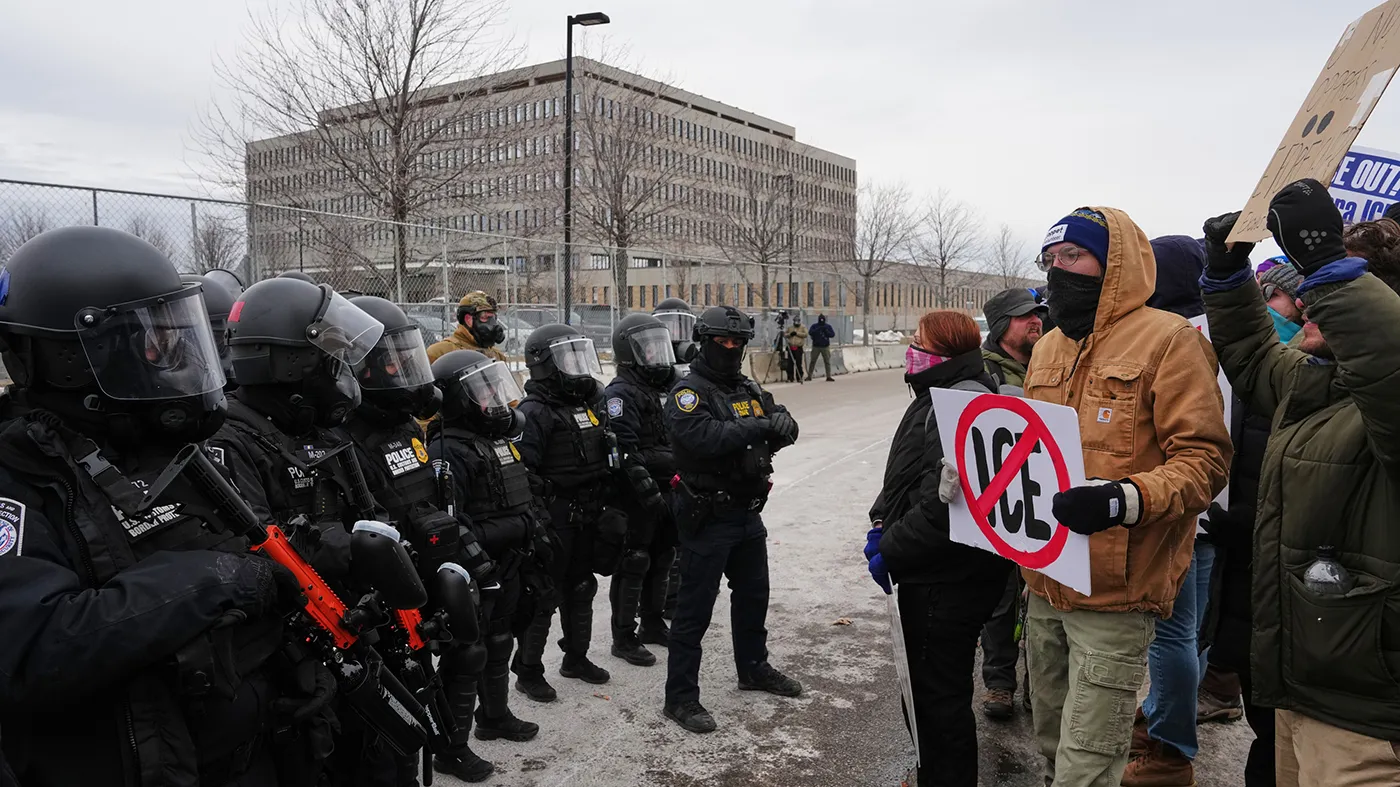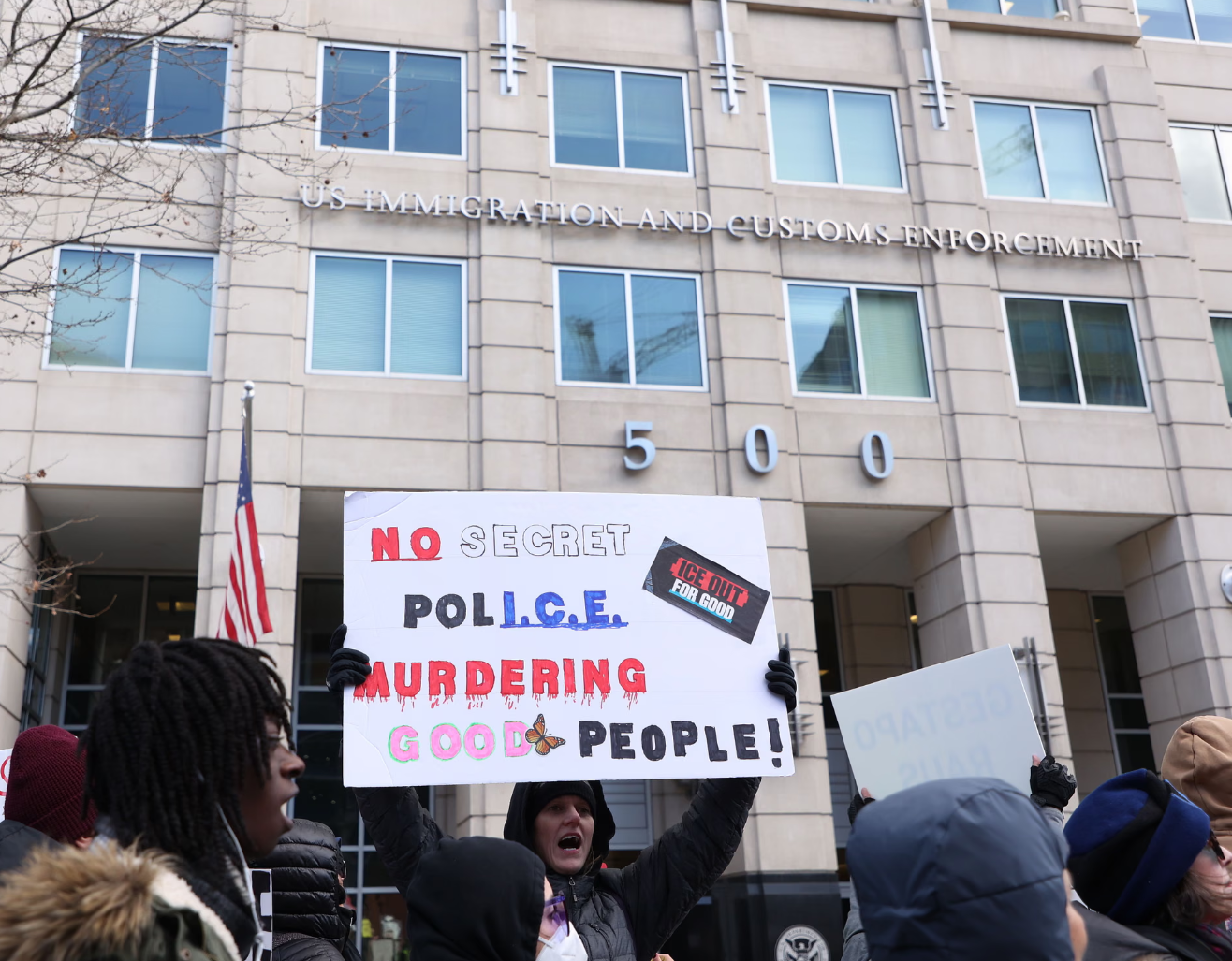TALLAHASSEE, Florida — Anti-abortion groups in Florida will try to block implementation of a ballot measure protecting the procedure if voters approve the initiative in November, signaling that the fight over abortion rights in the state will likely continue far past this year’s elections.
Mat Staver, the founder of the anti-abortion group Liberty Counsel and who argued against the ballot measure before the state Supreme Court last winter, said on Thursday that if voters approve the initiative, “there is a prime lawsuit waiting to take it up to the Florida Supreme Court.”
“I think the door is wide open for that challenge,” Staver said during a interview. “There’s a lot to happen between now and that. But if that’s the case, that would certainly be our next step.”
Staver spoke to POLITICO a day after former President Donald Trump said that Florida voters are “probably going to change” the state’s strict bans on abortion, including a law outlawing the procedure at six weeks of pregnancy — a time when many women don’t know they’re pregnant. The state’s six-week ban is set to go into effect within weeks.
DeSantis: Voters will reject ‘extreme’ pot, abortion ballot measuresShare
https://imasdk.googleapis.com/js/core/bridge3.633.0_en.html#goog_1786111658Play Video
Trump made his comments Wednesday after Arizona’s Supreme Court ruled that a 1864 law banning abortions except when a patient’s life is threatened could be enforced. The former president said the Arizona ruling went too far and predicted that “it’ll be straightened out.”
Trump’s statement is a clear sign of how abortion has reshaped the political landscape ahead of the 2024 election. In previous months, Republicans across the country have had to explain their stance on an Alabama court decision that said frozen embryos are children as well as strict abortion restrictions, including in Florida. Democrats in key battleground states like Arizona are using abortion to drive voter turnout ahead of the election, and President Joe Biden’s campaign plans to use the issue to help turn Florida back into a purple state.
Staver admitted Trump’s comments hurt efforts made by Liberty and other anti-abortion groups that are seeking to stop Florida’s ballot measure from passing.
“I think he needs to think a little bit more in depth before he makes these off-the-cuff statements, because what that will do is not accomplish anything,” Staver said of Trump. “In fact, it does exactly the opposite.”
State Senate Democratic Leader Lauren Book, who has supported the ballot initiative effort since it began a year ago, said abortion rights cut across partisan divides. In Florida, that is a necessity: The ballot measure will need 60 percent of voter support to pass. Republicans outnumber Democrats in voter registration by nearly 900,000, the supporters of the ballot referendum, known as Amendment 4, will likely need bipartisan support.
“Donald Trump and I may not agree on much, but we’re both able to read the tea leaves on voter support for Amendment 4,” Book said.
Susan B. Anthony Pro-Life America, one of the largest anti-abortion groups in the country, is also seeking to defeat the abortion referendum. Kelsey Pritchard, director of state affairs for the group, wrote in a statement to POLITICO that although her organization will not share details, the initiative requiring 60 percent of the vote poses a significant impediment.
“With abortion activists failing to achieve 60 percent wins in the purple states of Michigan and Ohio, they’re going to find it difficult to achieve that level of support in the red state of Florida where Gov. DeSantis won by a landslide in 2022 and the majority of residents support the heartbeat protection,” Pritchard wrote.
Staver said that the April 1 Florida Supreme Court opinion opened the door for anti-abortion groups to use a personhood argument since a provision in the Declaration of Rights, found in the state Constitution, which guarantees rights for “all natural persons.” Three of the seven justices wrote in the April 1 opinion that the court has yet to decide if fetuses are included.
In a dissenting opinion, conservative Justice Jamie Grosshans wrote that the court has failed to address whether fetuses should have rights.
“Even if the court has not acted on the issue, our silence should not eliminate a citizens right to be informed,” Grosshans wrote. “If advised of the conflict, the voter could recognize for themselves that, at some level, an amendment providing broad protection for abortion would bear upon constitutional personhood rights as applied to the unborn child.”




